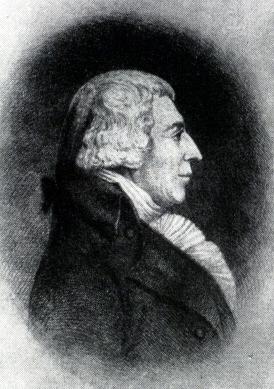
Richard Dobbs Spaight represented North Carolina at the Constitutional Convention. He later served as Governor of North Carolina and represented the state in the U.S. House of Representatives. Spaight was killed in a political duel in 1802.
Early Life
Richard Dobbs Spaight was born on March 25, 1758, in New Bern, North Carolina. His parents died when he was eight-years-old. He went to live with relatives in northern Ireland and later attended the University of Glasgow. Spaight returned to North Carolina during the American Revolution, siding with the Patriots. He served as an aide-de-camp to Major General Richard Caswell. In 1780, he participated in the Battle of Camden.
In 1779, Spaight was elected to the state legislature. The General Assembly appointed Spaight to serve as a delegate to the Confederation Congress from 1782 to 1785. He later served in the North Carolina House of Commons from 1785 to 1787, including a term as Speaker of the House.
Constitutional Convention
In 1787, North Carolina chose Spaight as one of its representatives at the Constitutional Convention. He attended all of the sessions, but was not a frequent speaker. Spaight was a proponent of the Great Compromise, which called for a national legislature comprised of a Senate that gave an equal voice to all thirteen states with two members from each, as well as a House of Representatives with the number of each state’s members based on population. After signing the Constitution, Spaight played a key role in North Carolina’s fight over ratification.
Public Office
After unsuccessfully running for Governor of North Carolina and seeking election to the U.S. Senate, Spaight briefly retired from public life in 1792. In 1793, his bid for governor was successful, and he became the first native-born leader of the state. As governor, Spaight oversaw moving the state capital to Raleigh and chartered University of North Carolina.
In 1798, Spaight was elected to the U.S. House of Representatives. He served until 1801. While in Congress, Spaight’s growing concern with states’ rights led him to switch his party affiliation to Thomas Jefferson’s Democratic-Republican party. After losing reelection to the Senate, Spaight returned to North Carolina and rejoined the state legislature.
Death
In 1802, Spaight was killed in a duel with a political rival, Federalist John Stanly. He was 44 years old.








